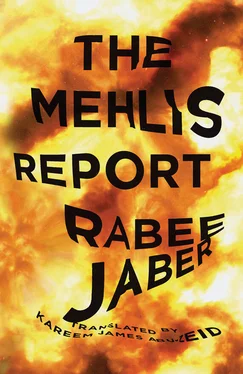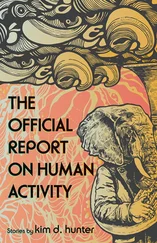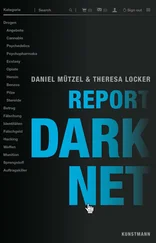Cecilia is taking dishes of food out of the refrigerator and over to the other table, in the living room. Saman is drinking a glass of cold white wine and reading an article in her magazine about the explosions in Beirut. The writer has included a brief summary of Lebanon’s long Civil War: the war began in 1975 and ended in 1990; during those years, the city was split in two; one hundred thousand people were killed, and about twenty thousand were kidnapped. Since 1990, conditions have been improving. Solidere, the company founded by former Prime Minister Rafik Hariri, has been rebuilding downtown Beirut’s commercial district. One of the largest construction projects of the past few decades, the effort is comparable to what took place in European cities after the Second World War. The project has faced strong domestic opposition, and has not gone smoothly. Nevertheless, the war didn’t start up again. And until the beginning of October 2004, neither did the explosions. The first explosion was taken to be a warning to Hariri and his allies: a picture of the corniche in the Manara neighborhood, near the old lighthouse, with people walking around. Then a picture in the corner of the page: a burning car. The second explosion took place on February 14, 2005. This time Hariri’s convoy was targeted, and the man was killed. A picture of the Saint Georges Hotel balconies collapsing. A picture of broken glass in front of the Phoenicia Hotel. A picture of a charred corpse. A picture of an overturned car surrounded by piles of ash and rubble. A picture of the pit filled with rainwater. A yellow ribbon and bare olive and pine trees that had not been burnt. A white electrical generator. Cameras, and a truck. At the bottom of the page: a shampoo ad. On the opposite page: an interview with a writer from Senegal.
Cecilia is frying cauliflower. She asks where he’s been the past few days. She laughs as she takes a step backward, away from the hot oil.
“The cauliflower’s damp — that’s why the oil’s splattering.”
He sleepily pushes the magazine away. He’s on his third glass. He’s been drinking more these days. She walks over to the window above the sink and opens it to let out the smoke. Sounds from the street enter the apartment: the city and its rumbling; the cars speeding into the tunnel under Sassine Square.
She takes the magazine to the other room. So he won’t get wrapped up in it again. She comes back, tying up her hair and saying something about the Geitawi explosion, that the neighbors’ windows were shattered.
“The explosion on Rue Huvelin broke even more windows,” he says. “Even though the bomb was smaller.”
“Because it’s such a tiny narrow street,” she replies.
“And because the houses are older over there. They’ve got old windows.”
He doesn’t tell her that on the night of the explosion he was entertaining another woman at his place. Nor does he tell her that the following morning — the morning after the explosion — he walked with that woman down Monot Street, which was covered with glass. The street was full of police and army vehicles; as he tread carefully so as not to slip on the glass, the woman clung to his arm. At the intersection by the Jesuit University, he saw men and women sweeping the glass into piles beside the sidewalk. Glass from the café windows, glass from the storefront windows, glass from the nightclub windows. There was glass everywhere: Monot Street was covered. The light shone down on it, and on the street’s black volcanic rock. His lover Liliane was leaning on him and crying. She cried from Monot to Abd al-Wahab al-Inglizi Street, and on to the Furn al-Nasra Bakery and Baydun Way. He bought her a manakish sandwich and a bottle of Miranda from a store by the mosque. She couldn’t eat. He ate the manakish while she drank half the soda. The bells of the nearby church were ringing, and they went in and sat down. There were a few others in the church. When they left, Liliane declared that no one in this city would ever go to Hell.
He asked her why not.
“Because we’re already in Hell.”
He wanted to reply, “What would you say about Baghdad, then?” but he thought it might upset her, and he didn’t want that — she was hard to calm down once she got upset, and he thought she might spend another night at his place if he asked her. Besides, what good does it do to always speak one’s mind?
He kept silent.
“When we’re together where do you wander off to? Why don’t you talk to me? Say something!” Cecilia’s voice comes from behind a tremulous white cloud. Saman sets his glass on the table and looks at her.
He says one of his friends — someone who works at the engineering firm Dar al-Handasa — told him that the Interior Ministry has imported surveillance cameras from Europe and will be installing them on all the streets of Beirut. Not a single alley will be left without a camera. Even the tiniest dead-end streets will have them. They’ll even be putting a camera here, at the entrance to this building.
He laughs and asks where her cigarettes are.
She goes to the living room and comes back carrying a green plate piled with cigarette packs. He picks out a pack of Gitanes Lights. She brings him a matchbox from the stove. He lights a cigarette and says he has to visit the Rizq Hospital for his annual physical.
As she grinds up some garlic with a pestle, she asks him why.
He says he’s been feeling weak, and very anxious at night, though he doesn’t know the reason. Sometimes he wakes up to go to the bathroom, for example, and can’t fall back asleep.
She says it must have something to do with the explosions.
“And with Mehlis. We won’t sleep well until he speaks.”
She stops crushing the garlic. Her mind somewhere else, she looks out the window at the building across the street. Lots of balconies with drying laundry spread out all over the place. A Bangladeshi woman shaking out a carpet. Cecilia, turning toward him, says: “The power was out yesterday, but only on this street, and only in five buildings. It didn’t come back on until the morning. The whole night I could feel people moving around — I could hear doors, water pipes, voices. In this building, and in the other one. And I could see the candles. No one slept the whole night.”
She puts the garlic into a deep dish, then mixes it with sesame paste and water. The smell of tahini fills the air. She gets up, opens the fridge, and pulls a tomato and a cucumber out of a drawer.
The sound of a television comes through the window — the news hour’s theme music. Then a few words lost to their ears. And then a Member of Parliament announces that the “serial killer” roaming the streets of Beirut and planting bombs will inevitably be brought to justice.
“I’ll tell you what I saw just as I saw it. Nothing more. And nothing less. I was on the way home. It was after 10:30. The road was dark, but when I reached the streetlights in front of Edouard Kourani’s house, the road was lit up. I saw movement behind the green garbage cans. The ground’s always dirty there. The pavement’s sticky because of the liquid seeping out of the garbage bags. And there’s that derelict plot of land and those iron fences, and the sidewalk overrun by dogs. The neighborhood’s full of dogs. There’s at least one dog for every household. And Bangladeshi women working as maids, and Sri Lankans, and Filipinos (George Estefan’s house has a Korean maid, the Broadwell house has an Indonesian): those short dark-skinned women take their employers’ pets to that sidewalk. Poodles and other small dogs, and a few big ones too — and all of them shit there. I saw something move. I thought it was a stray dog, or a cat in the garbage, but then I saw a man come out from behind the dumpster. At first I took him for one of the Sukleen garbage men, but then I thought: That can’t be. Where’s the truck? Where’s the garbage truck? He hadn’t seen me yet. I was on the dark side of the street, and I saw a red light go on behind the bins. What was that? A battery light. I didn’t think the man was homeless — he looked normal, he was wearing normal clothes. He didn’t look homeless. Then I heard him speak. I carefully drew a step closer and saw another man, as well as a motorcycle and a car. What were they doing to the car? It was a Mercedes: its ignition was off. They were doing something to the car. The sweat was pouring down my neck, onto my back. The cold liquid streamed from me as I stood there, not knowing why — I was frozen to the spot, a statue. What were they doing to the car? And what if they noticed me?
Читать дальше












